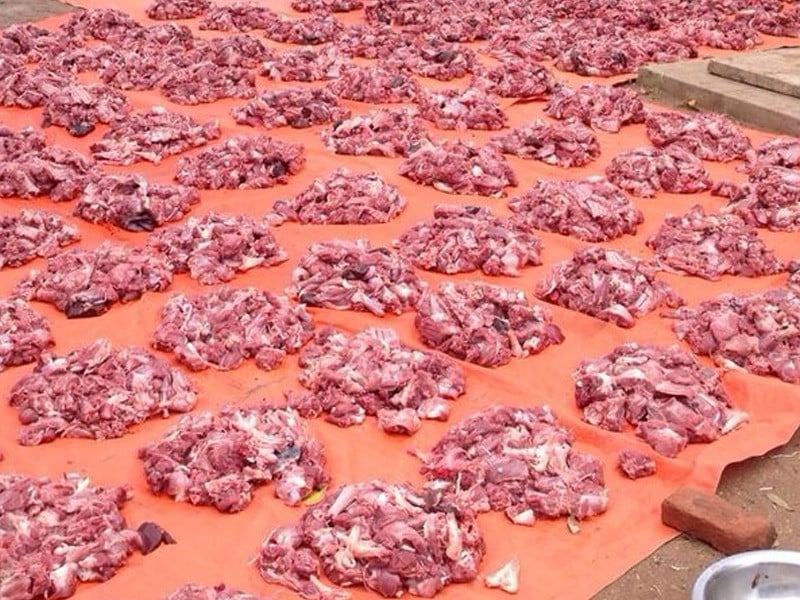In the remote and serene valleys of Hunza, Eidul Adha is marked by a unique and communal approach to the tradition of Qurbani.
Unlike elsewhere, where individual families perform Qurbani privately, Hunza’s practice revolves around a collective effort that emphasises anonymity and communal harmony.
Read also: In pictures: Celebrating Eid ul Adha across the globe
Villagers who commit to sacrificing animals bring them to a central location, where a joint Qurbani (sacrifice) ceremony takes place.
Here, the meat from the sacrificed animals is distributed equally among all residents, regardless of whether they contributed an animal themselves or not.
This egalitarian distribution ensures that everyone in the community receives an equal share, without knowledge of who the original donors are.
There are no public announcements or displays of generosity; instead, the focus remains on collective benefit and communal spirit.
This operation is entirely community-driven. There are no professional butchers involved; instead, the youth of the village take on the responsibility of butchering, while women participate in cleaning and preparing the meat.

